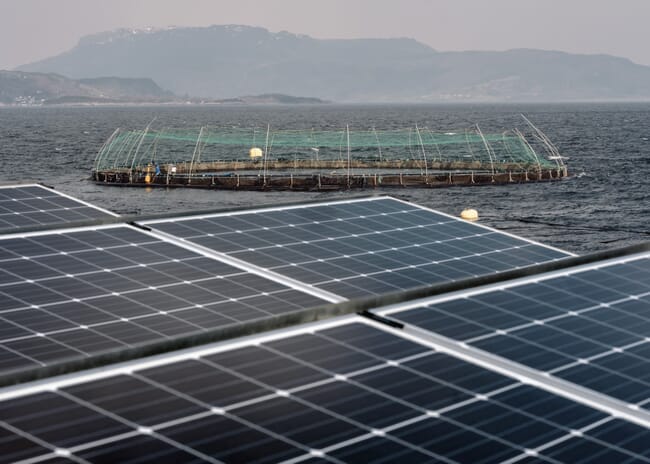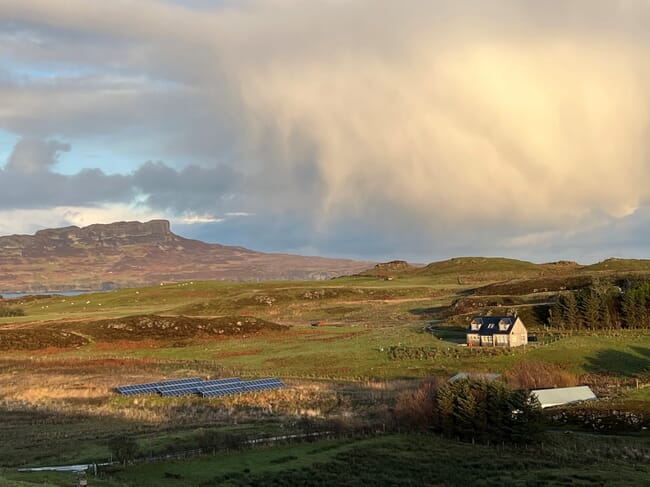
© Tommy Ellingsen
With everything at stake, world leaders, including The Nature Conservancy (TNC) – one of the world’s largest environmental non-profit organisations – have come together in Dubai to coordinate global climate action for the coming year at the UN climate change conference, COP28.
This COP meeting in particular has added significance as it comes shortly after the first official UN report card on the world’s climate progress – the Global Stocktake – which laid out in stark detail the current gap between ambition and action.
Aquaculture as solution
Robert Jones, global aquaculture lead for TNC, told The Fish Site: "For humanity's response to the interconnected climate and biodiversity crises to be successful, every sector of the economy has a part to play. However, the role of the food system has often been overlooked – especially when it comes to aquaculture. With the right practices, aquaculture can provide food with fewer resources and emissions while also supporting ecosystem restoration. Aquaculture is not only our fastest-growing form of food production, but it also has the potential to be the most sustainable.”
As countries work to strengthen and align their national climate action plans, The Nature Conservancy aims to be at the forefront of negotiations to achieve net zero by 2050, or sooner.

© Mowi
Jennifer Morris, CEO of TNC stated in a report: “It’s been eight years since the Paris Agreement and the first official report card on climate action, the Global Stocktake, is clear – we must increase our ambition and put an emphasis on action.”
The Nature Conservancy wants to see an unrelenting focus on driving down greenhouse gas emissions.
The organisation's collective action means accelerating adaptation to build secure, climate-resilient communities across the world – and not just in the wealthiest countries – while also steering financial flows towards outcomes that deliver for people and nature. The Nature Conservancy emphasises the importance of when we put a real value on nature, everyone benefits.
Actions The Nature Conservancy wants from COP28:
- Embeding nature in the Global Stocktake – there is no credible way to net-zero emissions without including nature as a solution.
- Triple global renewable energy capacity by 2030 in ways that support climate, nature conservation, and communities.
- Increase inclusivity and equity in climate policy processes – traditionally marginalised groups, like IPLCs, steward 80 percent of the world's cultural and biological diversity, and their involvement is crucial in shaping nature-positive solutions and climate policies.
- Deliver major investment packages and nature-related commitments to include the Mangrove and Coral Reef Breakthroughs, the Freshwater Challenge, and the Emirates Accord.
- Ensure nature’s role is clear in the Global Goal on Adaptation (GGA) – there should be clear metrics to showcase nature’s role in adaptation and how it benefits people and planet.
- Increase financial pledge implementation, including the New Quantified Climate Finance Goal – the renewed $100 billion pledge should go further and include both private and public sector financing.
- Dramatically increase private investment and build upon existing public funds to grow climate finance to scale and incorporate climate change into how our global economy functions.
- Ensure increased guarantees for nature and climate financing to help countries manage debt and fund nature and climate initiatives to magnify the finance available and harness the power of large development organisations.
- Immediate action on Loss and Damage to ensure climate-vulnerable and low-income populations are able to address impacts that disproportionately affect them.
- Responsibly develop carbon markets – we need high integrity carbon crediting by developing Article 6 rules on risk management, improving the quality of nature-based credits, and ensuring transparent reporting.




